Best guitar picks 2025: our choice of the best plectrums to try for acoustic, electric and bass players
Transform your playing style and guitar tone with the best guitar picks from Fender, Ernie Ball, D'Addario and others
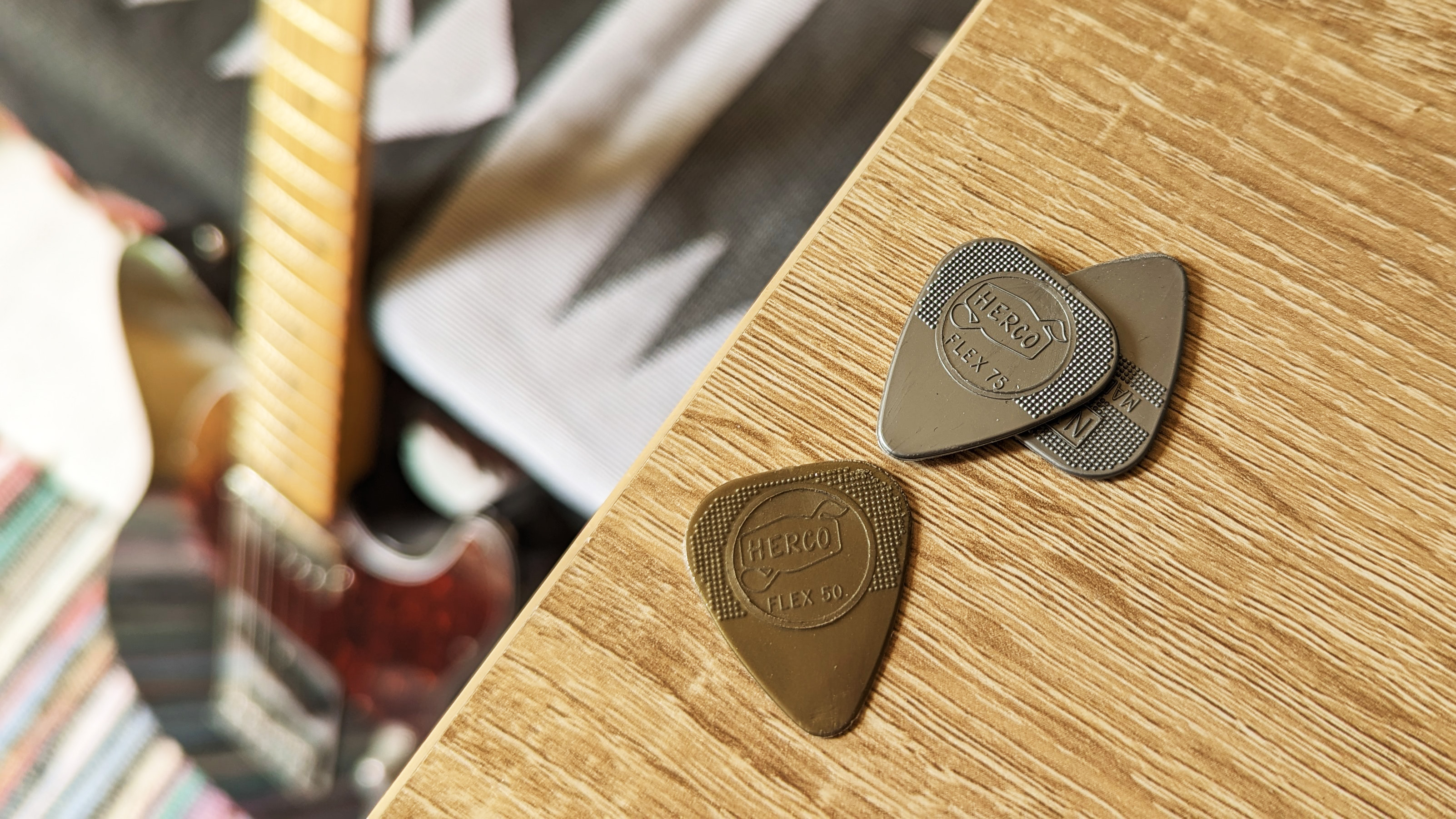
The humble guitar pick - also known as a 'plectrum' - is an essential part of most guitarists' tone and playability, yet its importance is often overlooked. Simply changing which plectrum you use can drastically alter the tone you produce - it's the vital link between your hand and strings. To help you find the right shape, size and material for you, we've put some of the best guitar picks for electric, acoustic and bass guitar to the test.
We have options from plec legends, Dunlop, to speciality picks from Gravity and even options from D'Addario and Fender, so you'll definitely find the best guitar pick for your needs here.
Further down this guide, you'll also find handy buying advice on everything from shape, size and material, so you can make an informed decision on what the best guitar pick is for you. Our widgets will also take you to best prices online right now at our trusted retailers.
Best guitar picks: MusicRadar’s Choice
Ultimately there is no rule when choosing which plectrum is right for you, it's a personal preference. With that being said, we can give you general pointers. For acoustic guitar players, or if you find yourself strumming a lot, we recommend the classic Dunlop Nylon Standard plectrum. This durable pick comes in many gauges (.38, .46, .60, .73, .88, 1.0mm), but we suggest starting with the .60 as it's not too thick, not too thin.
For more general use, then you can't go wrong with the Dunlop Tortex Standard plectrum. These are the most popular plectrums in the world for a good reason. They offer a balanced tone and comfortable grip.
We would recommend trying Gravity picks for the more advanced player looking for something a little different. These acrylic plectrums offer superb durability and a bright, articulate sound. They range in size from 1.5mm to 3.0mm, so you'll be sure to find one to fit your needs.
Best guitar picks: Product guide
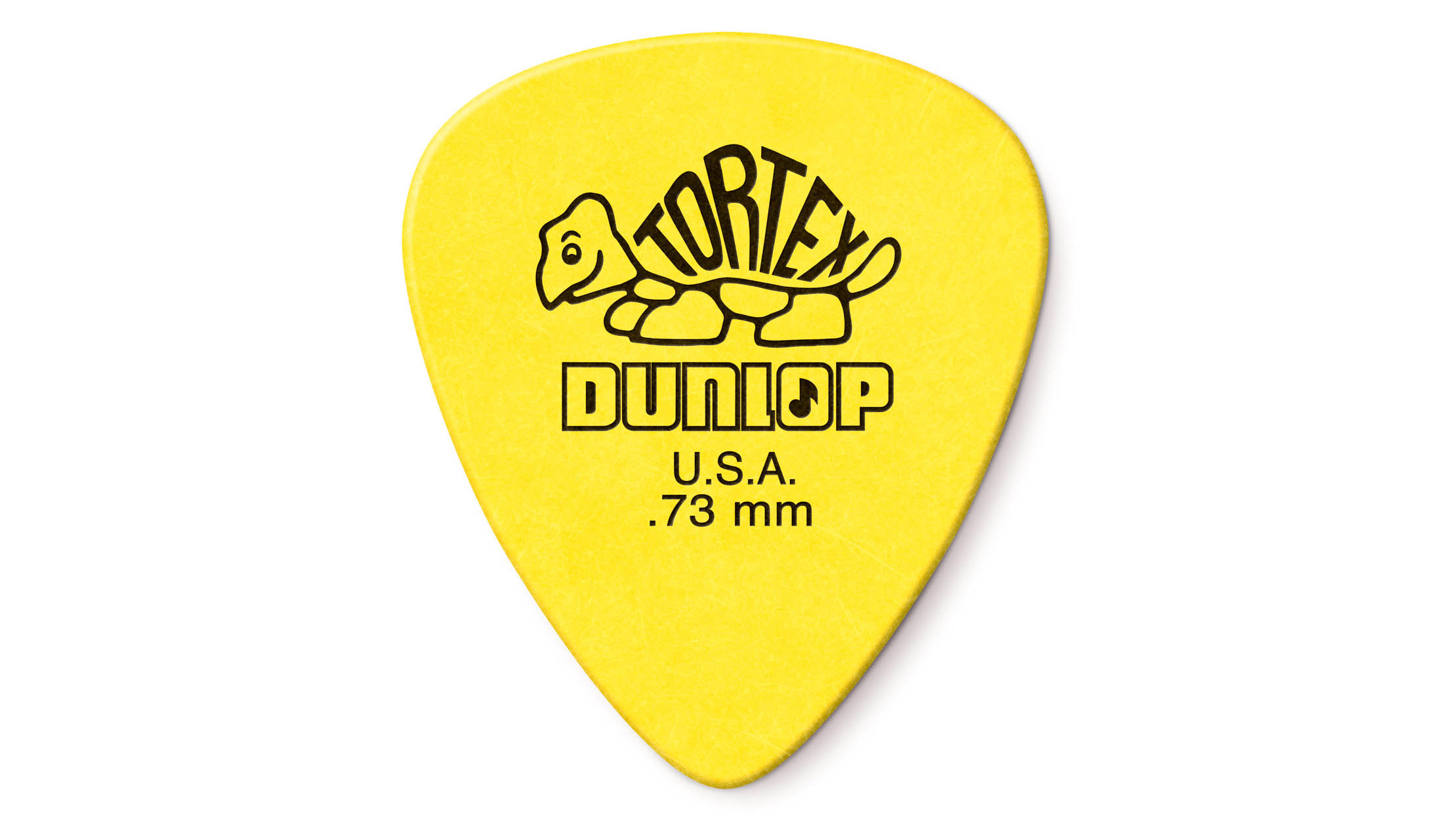
1. Dunlop Tortex Standard Plectrum
Our expert review:
Specifications
Reasons to buy
Reasons to avoid
First intended as a replacement for tortoiseshell (hence the tortoise design) Tortex picks were launched way back in 1981. Their durability, flexibility and bright attack have ensured they remain the industry standard today. They offer a balanced tone and comfortable grip. Dunlop’s colour-coding system makes it easy to find replacements for your preferred gauge, which range from .50mm (red) up to 1.14mm (purple).
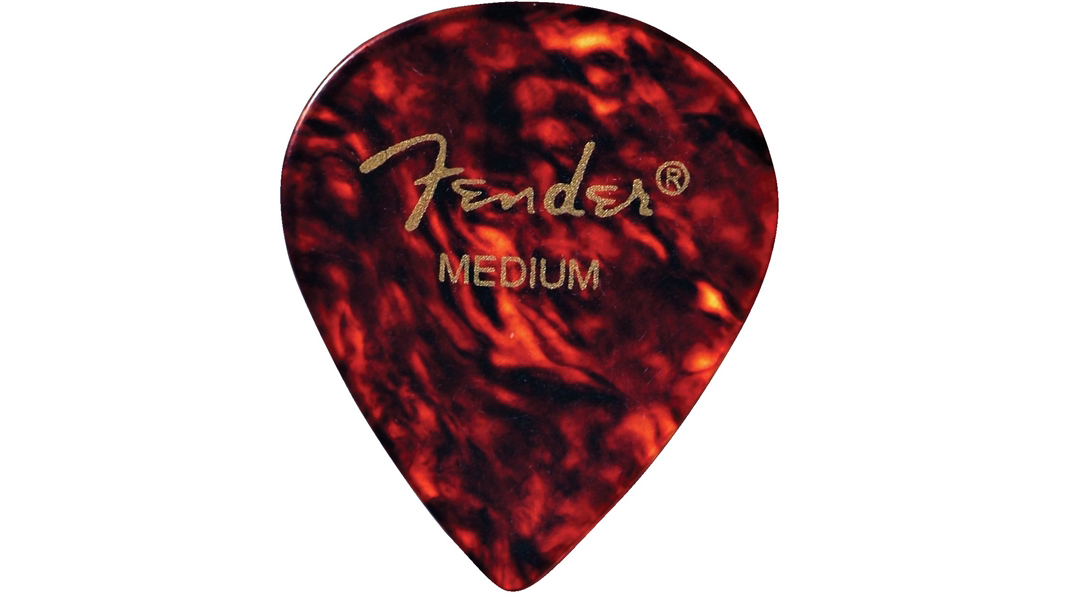
2. Fender 551 Shape Classic Celluloid
Our expert review:
Specifications
Reasons to buy
Reasons to avoid
Fender makes a surprisingly wide range of picks in a host of sizes, shapes and thicknesses, but the majority make use of celluloid. This material provides a warmer tone than many other pick types. The 551 takes Fender’s traditional 451 shape and serves up a wider body and sharper tip, making it great for rapid-fire single-note licks.
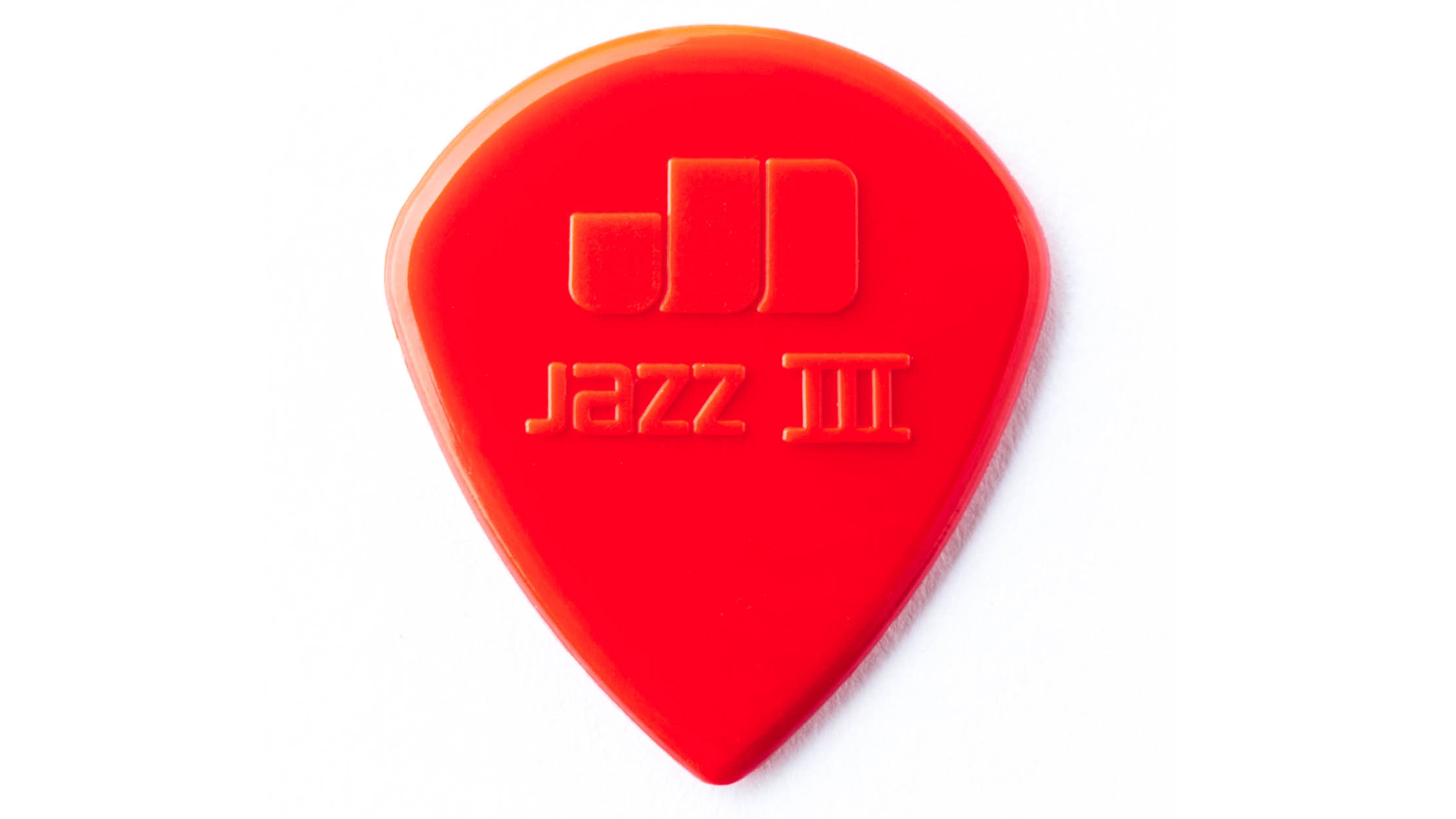
3. Dunlop Nylon Jazz III Guitar Pick
Our expert review:
Specifications
Reasons to buy
Reasons to avoid
The clue is in the name with this long-standing classic: a small profile, quick-release moulded edge and sharp tip provide the agility to see the Jazz III through the speediest of runs with ultimate precision. Two versions are available: the warm-sounding Red Nylon or brighter, sharper response of the Black Stiffo.
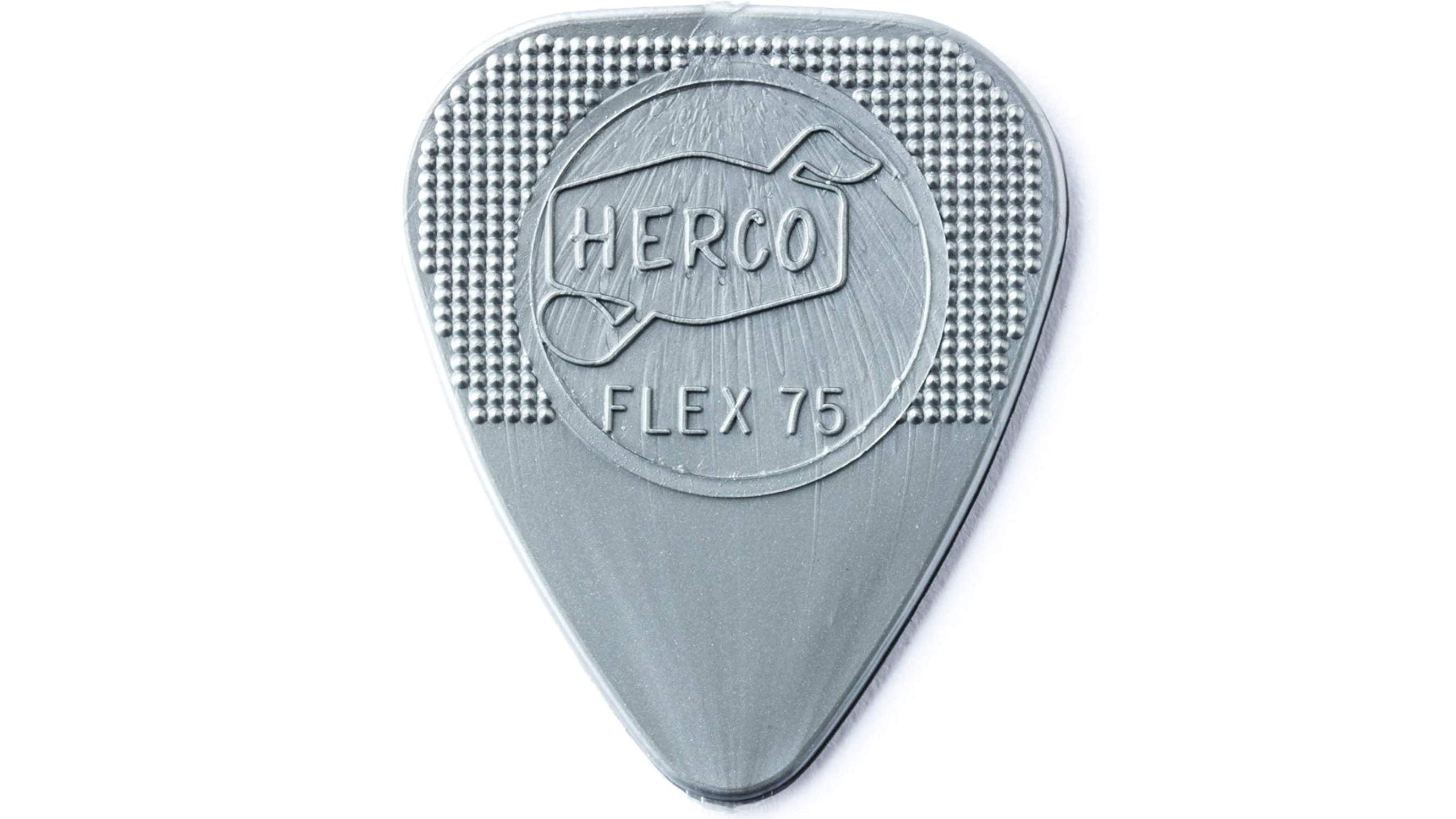
4. Herco Nylon
Our expert review:
Specifications
Reasons to buy
Reasons to avoid
Billy Duffy tells the story of how his guitar hero Johnny Thunders gave him a Herco pick as a young fan, and he's used them ever since. And the way Duffy ulitises them in The Cult proves how versatile Herco picks can be; he holds them sideways so the textured grip is hitting the strings, offering a chimy tonality akin to U2's The Edge on Where The Streets Have No Name with his similar choice of Herdim picks.
Now produced by Jim Dunlop, I use these picks myself in both ways, and find the Flex 50 Gold great for acoustic strumming with the heavier Silver Flex 75 ideal as an all-rounder for electric guitar.
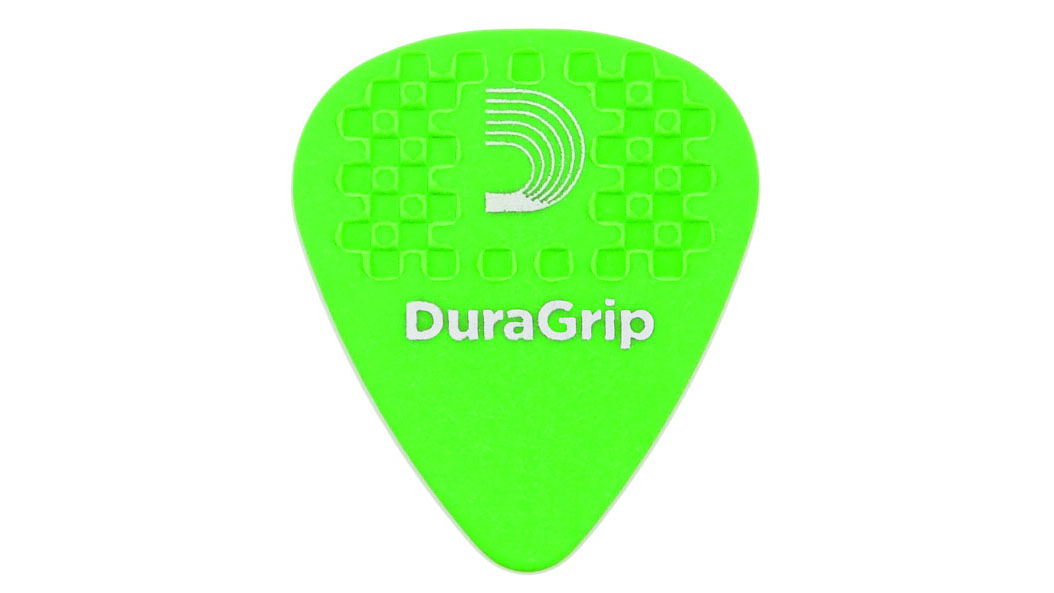
5. D’Addario DuraGrip
Our expert review:
Specifications
Reasons to buy
Reasons to avoid
The DuraGrip design, from guitar string and accessory giant D’Addario, is made from Duralin, which promises to highlight the bright ‘click’ of the pick hitting the string, whether that’s playing chords on acoustic, laying down speedy single-note runs on electric or hitting a bass hard. Add in a stamped grip design, enhanced durability and choice of seven different gauges, and the DuraGrip is worth picking up. It’s available in Wide, Jazz, Sharp and Standard shapes.
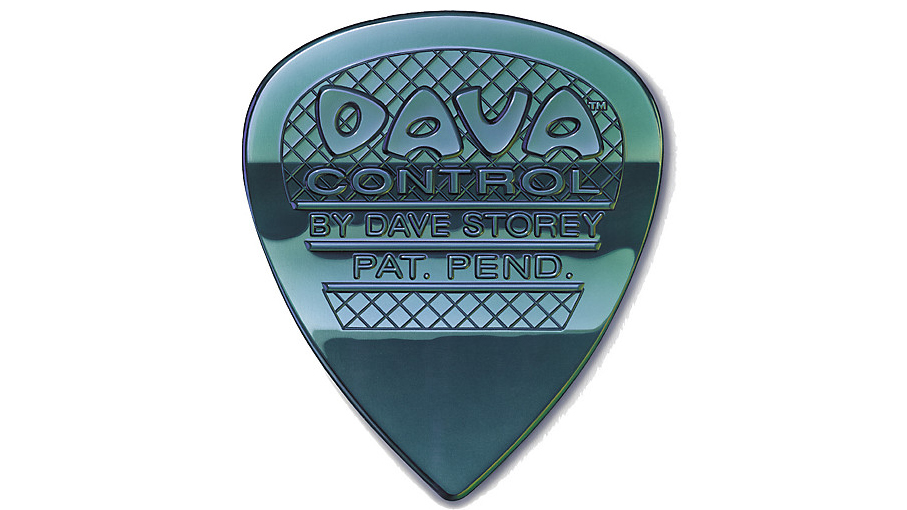
6. Dava Control Picks
Our expert review:
Specifications
Reasons to buy
Reasons to avoid
Guitar players usually have to make the choice between lighter-gauge picks for strumming and heavier gauges for single-note picking, but Dava allows guitarists to possess both in a single pick - depending on where you hold them across the Control Region, Control Picks can provide a soft or hard response. There’s a choice of three materials, too: Delrin, Nylon and Gels.
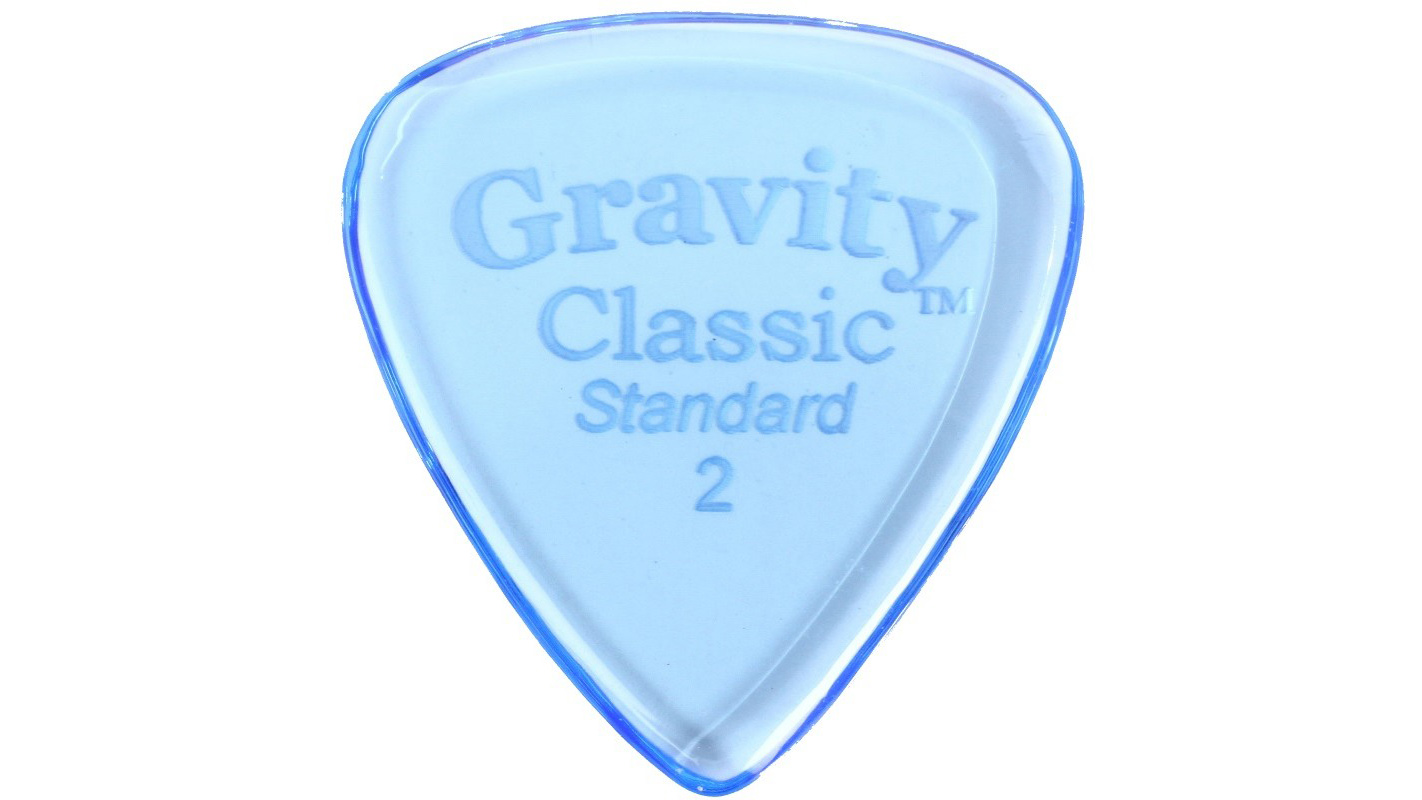
7. Gravity Picks
Our expert review:
Specifications
Reasons to buy
Reasons to avoid
An acrylic construction affords Gravity Picks a different sound and feel to a lot of other plectrums on the market. Besides offering increased grip for your fingers, they seem to ‘glide’ across the strings - great for string skipping and sweeping - and deliver a brighter tone to boot. 1,000s of variations are available, and you can easily order customised versions, too. Sizes range from 1.5mm to 3.0mm.
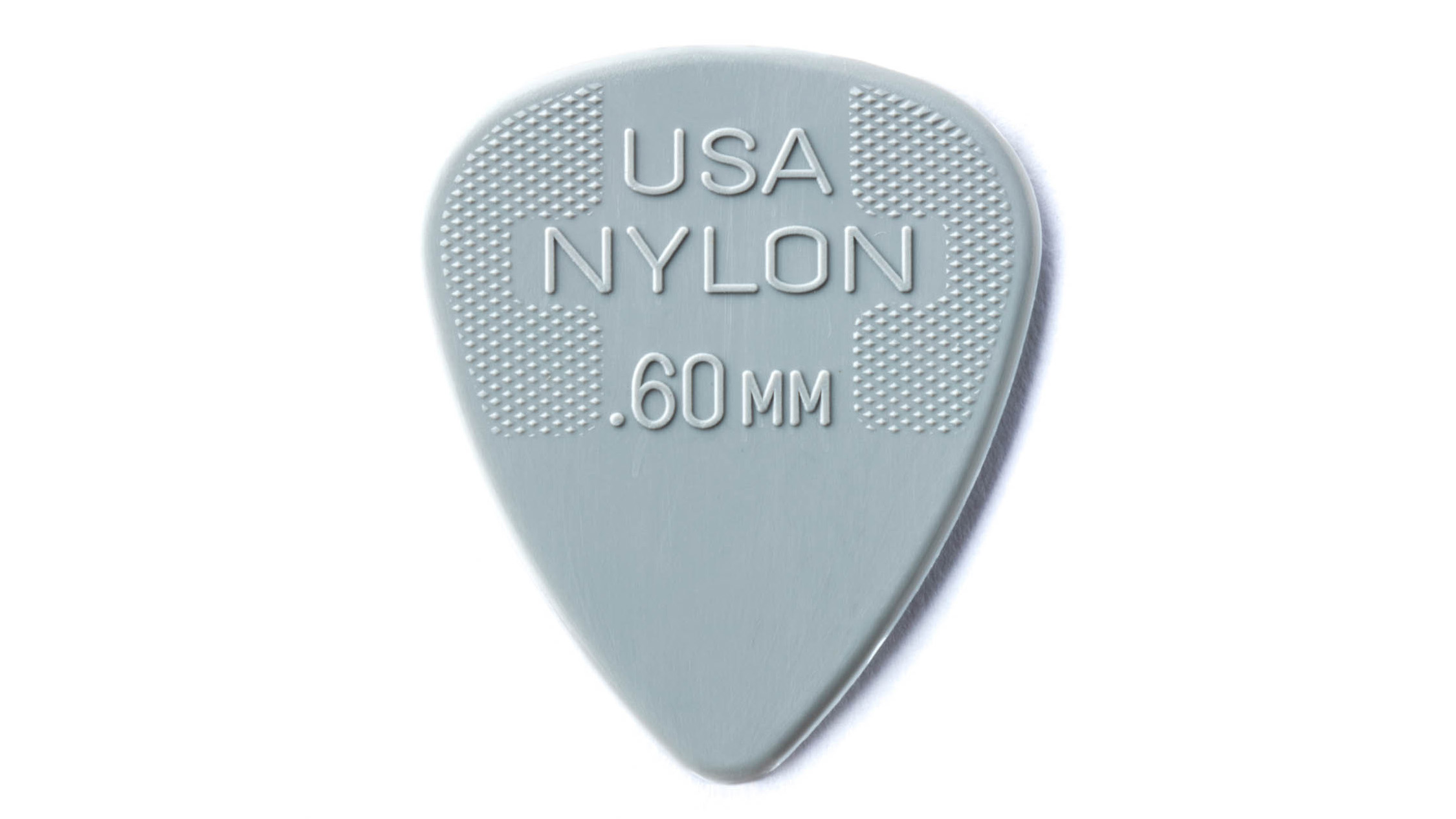
8. Dunlop Nylon Standard Plectrum
Our expert review:
Specifications
Reasons to buy
Reasons to avoid
Players continue to swear by Dunlop’s Nylon Standards, which are known for their warm tone and durability. If you’re after a lighter-than-normal gauge, this is the best place to look: Nylons start at a seriously wobbly .38mm and .46mm, and go up to 1.0mm. They’re a handy tool to have in your arsenal for recording textures and delicate acoustic strumming.
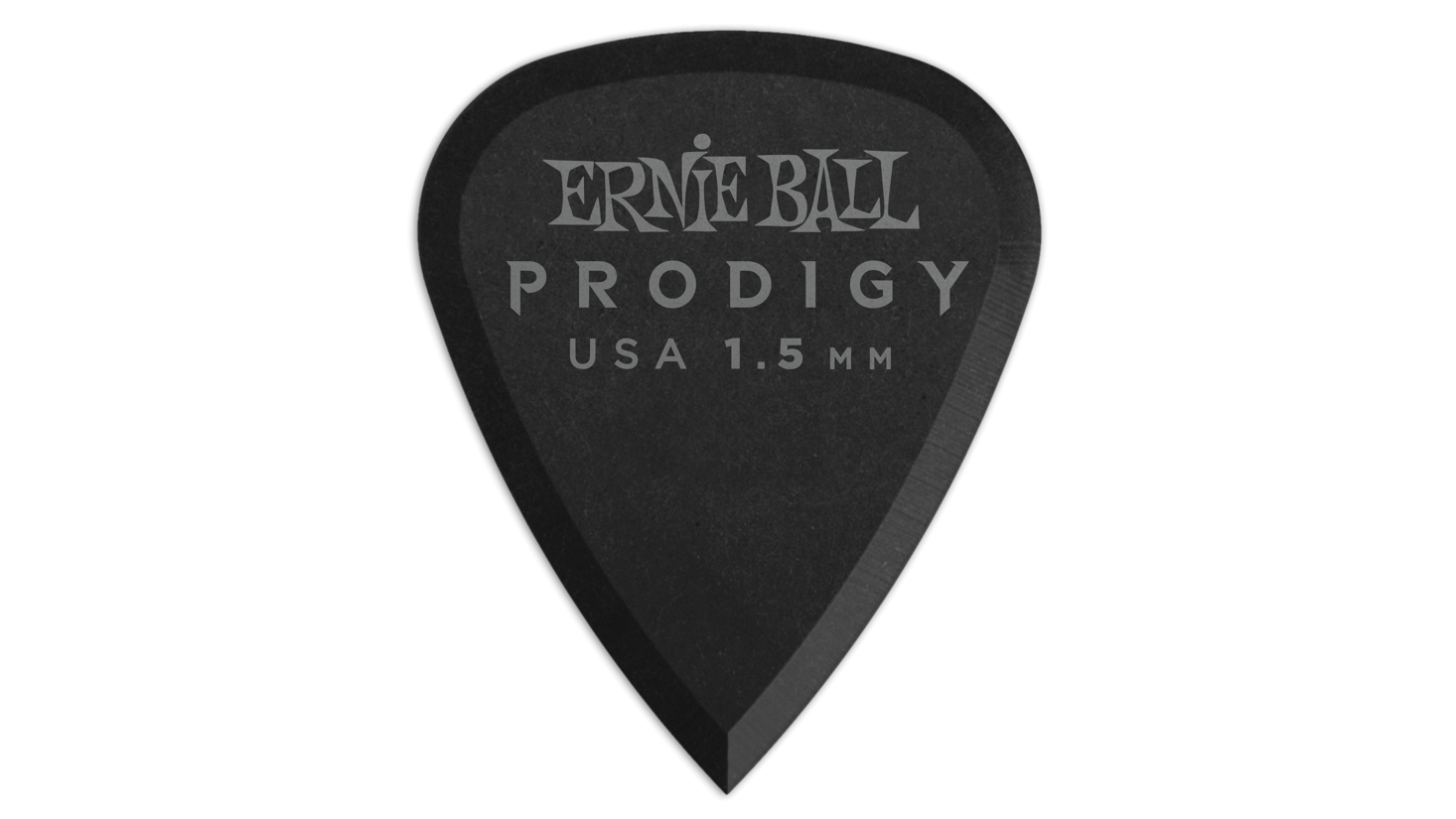
9. Ernie Ball Prodigy Picks
Our expert review:
Specifications
Reasons to buy
Reasons to avoid
Ernie Ball brands these ‘high performance’ picks, and it’s easy to see why: made out of Delrin for enhanced grippage, Prodigy Picks boast a machined bevelled edge and sharp point to aid speedy playing techniques by reducing drag and enhancing articulation and control. That makes them a sound choice for shred and metal players. They’re available in 1.5mm and 2.0mm gauges, in standard and mini formats.
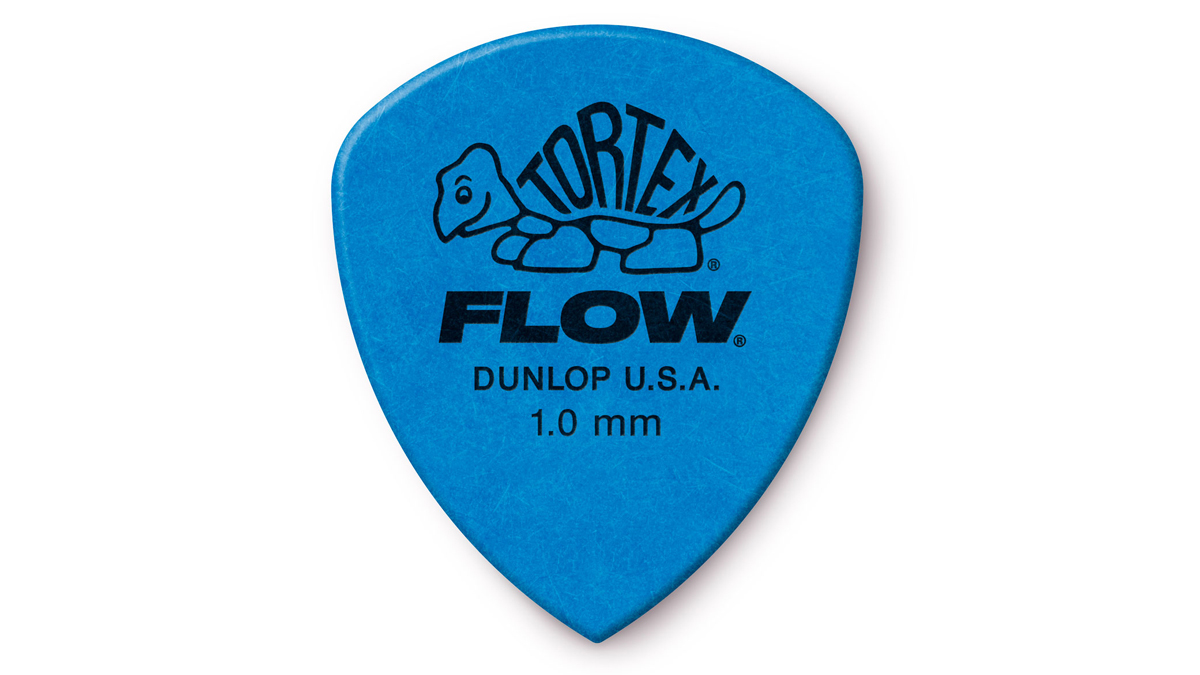
10. Dunlop Tortex Flow
Our expert review:
Specifications
Reasons to buy
Reasons to avoid
This new take on an old favourite gives the beloved Tortex series a bevelled-edge makeover. Sharp edges and a wide angle provide the gliding movement that made Dunlop’s existing Flow picks a hit with shredders such as Andy James and John Petrucci, but here they’re paired with the traditional Tortex material for an altogether snappier response. They’re available in gauges from .50mm to 1.5mm.
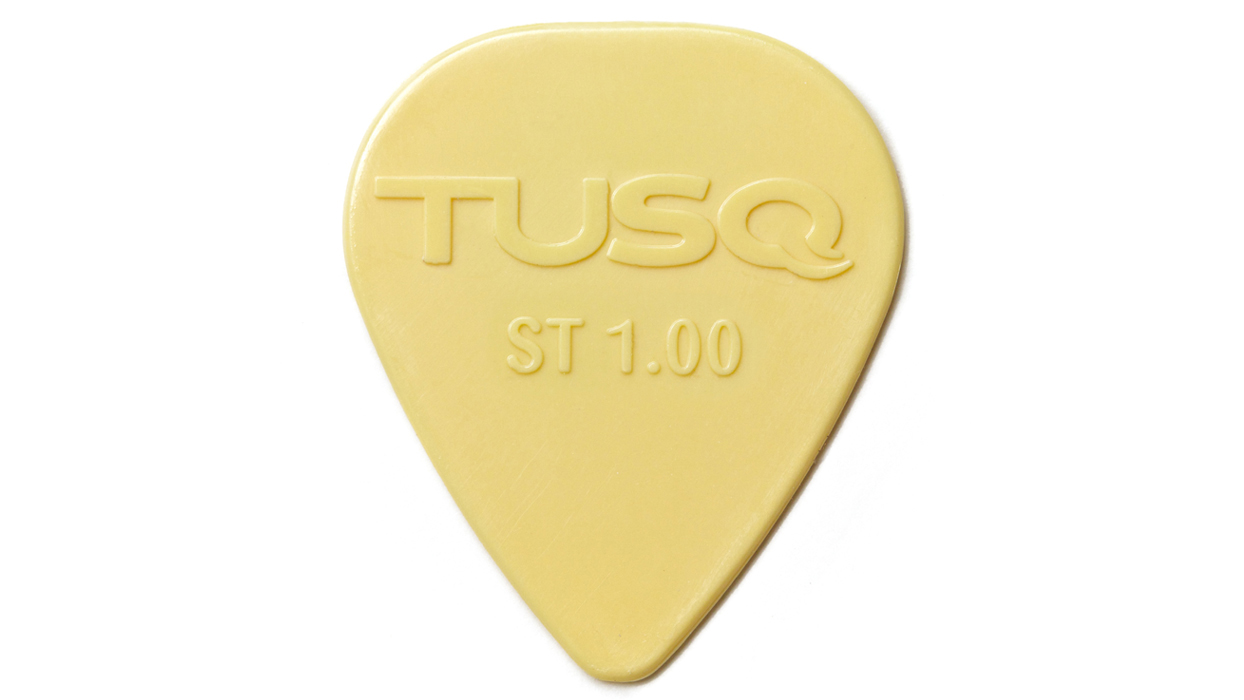
11. Graph Tech TUSQ Guitar Picks
Our expert review:
Specifications
Reasons to buy
Reasons to avoid
You’ve probably heard of TUSQ - it’s the man-made ivory substitute that’s used in a lot of nuts and bridges. Graph Tech has also crafted picks out of the material, with a unique twist. There are three different ‘tones’ of TUSQ Pick (bright, warm and deep) in three different sizes (teardrop, standard and bi angle), each of which affects the sound that comes out of your guitar. The picks are also comfortable and hardwearing - and they make a satisfying sound when you drop ’em on a hard surface, too.
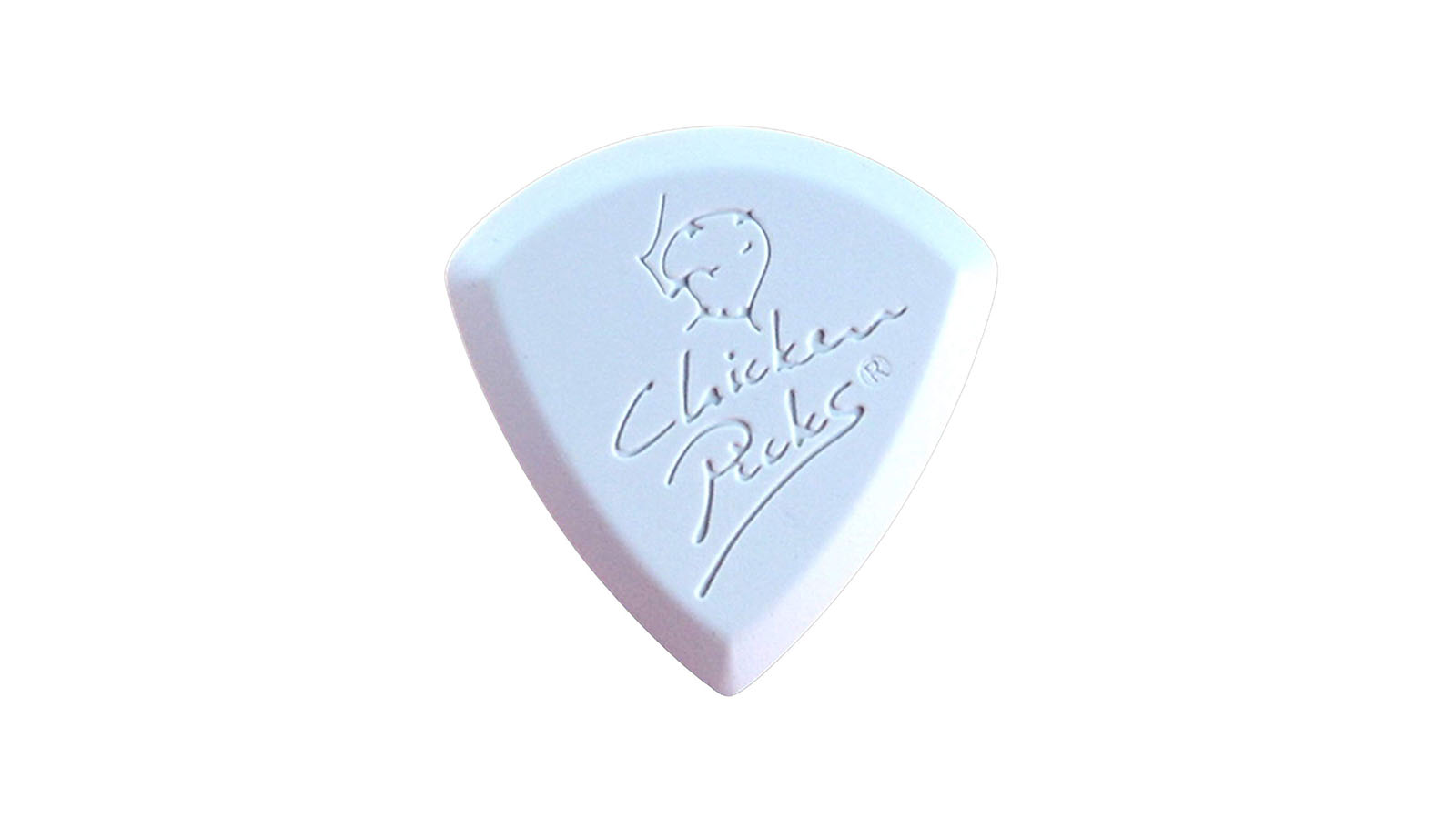
12. ChickenPicks Badazz III
Our expert review:
Specifications
Reasons to buy
Reasons to avoid
With a name like ChickenPicks, you'd expect this plectrum to be aimed squarely at country style hybrid playing right? Well, it'll handle that with ease, but this is also a great plectrum for jazz and general shredding. The thick, precision-edged Badazz III, crafted from thermosetting plastic, comes from the Tritone III series and is available in 2mm and 2.5mm thickness. This pick is comfortable to use, with a good grip, and is versatile enough to handle everything from rock and jazz to country and metal.
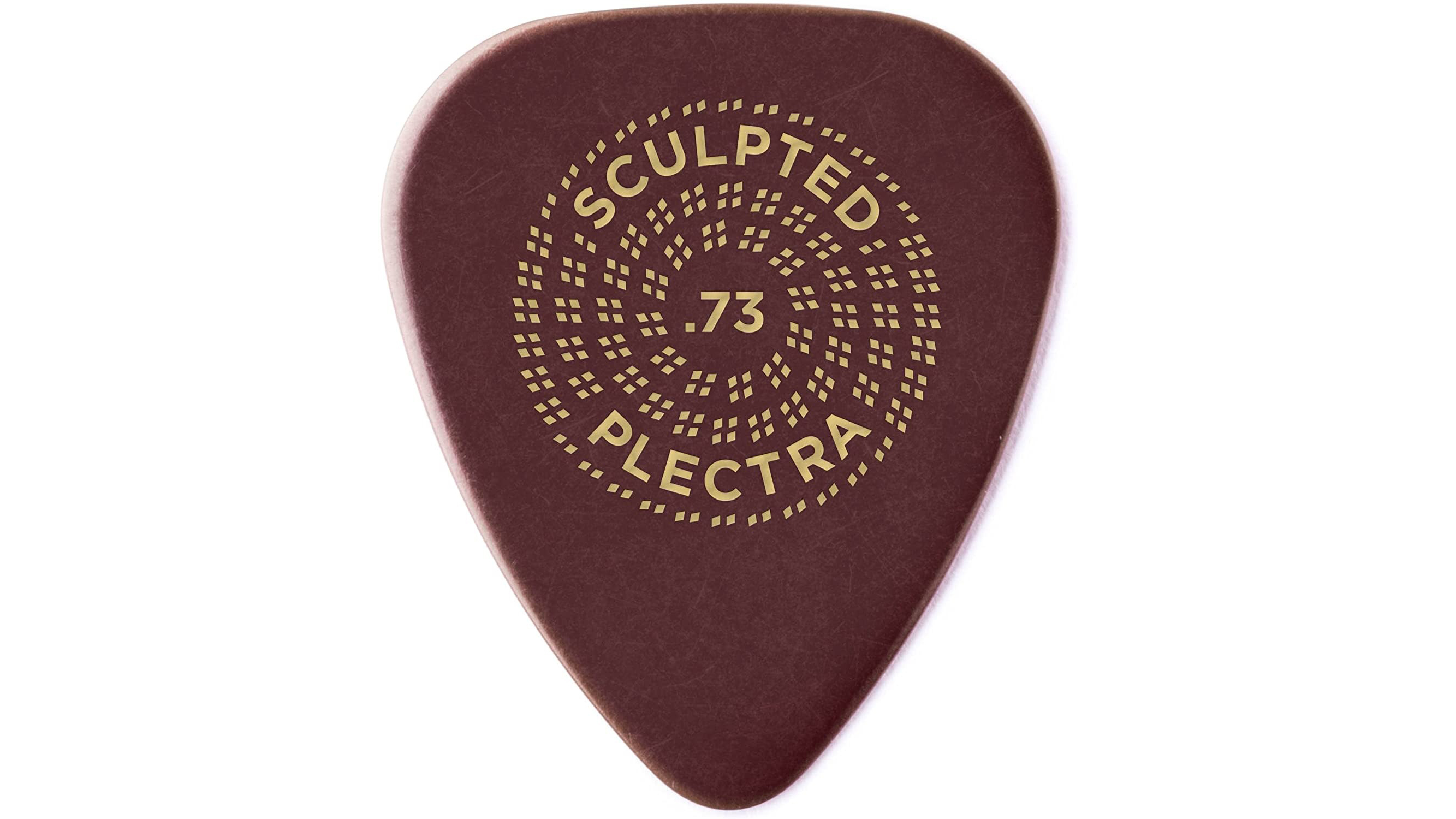
12. Dunlop Primetone Standard
Our expert review:
Specifications
Reasons to buy
Reasons to avoid
'Hand-burnished sculpted edges'; it just sounds inviting, doesn't it? Dunlop claims this treatment in the factory at the string contact point allows for faster articulate runs. We concur – we really did feel like our playing was able to move into a more fluid space with the .73 gauge pack of three we bought (yes we pay for our own picks here you know!).
They're made from Ultex so they're no more durable than Dunlop's cheaper models made from that material and pretty standard in the longevity stakes, in our experience. But the premium is for that burnishing and there's definitely a smoother experience from it. The Primetone treatment is also available for Flow and Jazz III, as well as Triangle for bassists, so offers an ideal opportunity to try trading up with your next pick purchase.
Best guitar picks: Buying advice
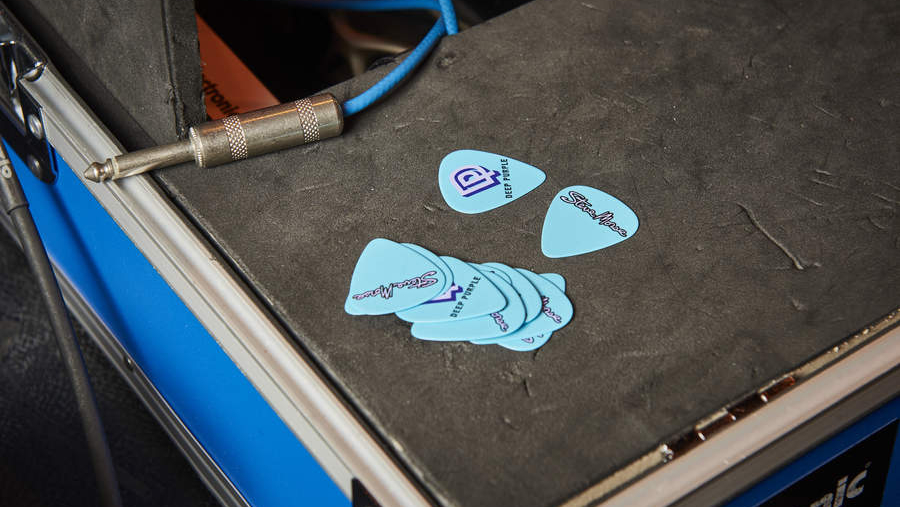
Choosing the best guitar picks for you
MusicRadar's got your back
There are a few things to consider when exploring guitar pick choice, which we go into detail on below. But don't forget, picks are amongst the cheapest products you'll buy as a guitarist, but finding the right one is vital to playing feel and sound. So with that, we'd always recommend buying and experimenting with a variety of plectrum styles, gauges and materials to find the right fit for you.
What guitar pick shapes are there?
The shape of a guitar pick has a significant impact on how you play the guitar and should be considered carefully. Ultimately the shape affects the plectrum's surface area and, therefore, how easy it is to transition between the strings on your guitar or bass.
Strummers and acoustic guitar players often gravitate towards a larger pick size. This allows them to strum the strings without worrying about their fingers getting in the way. On the other hand, metal and jazz players often prefer a smaller pointed pick to maximise dexterity and allow them to skip between strings quickly.
What is the gauge of a guitar pick?
Once we have determined a shape, we need to decide on the gauge. The gauge simply refers to the thickness of the pick. The general consensus is that a thinner plectrum is better for rhythm playing or strumming. In contrast, a thicker plectrum is better suited to more detailed picking or even bass playing.
That said, there are no rules, the gauge of plectrum you use really comes down to personal preference - simply pick the one that feels the most comfortable to you.
What are guitar picks made of?
Finally, of course, there's the material to consider. Traditionally plectrums were made from natural materials and animal byproducts, including bone, tortoiseshell, steel, amber and wood. The first plastic guitar pick was made by D'Andrea way back in 1922, and this would go on to be the blueprint for the plectrums we use today.
Guitar picks are now primarily made from synthetic materials, including, celluloid, nylon, acrylic, delrin and even glass. Obviously, the material you choose greatly impacts your grip and tone.
Nylon and celluloid plectrums produce a warm, mellow tone perfect for acoustic guitars and 12-string guitars. Acrylic plectrums offer a brighter, more articulate sound, perfect for lead players.
If you are looking for a general pick to do a little of everything, Tortex is a good option. These picks are usually very durable and offer an even sound. There is a reason these are by far the most popular plectrums around.
It is important to remember that these are just guidelines, and there are no hard and fast rules to which is the best guitar pick for you. Experiment and try different things - you never know you may forgo the plectrum altogether and end up using a sixpence, like Brian May!
How we chose the best guitar picks for this guide
Here at MusicRadar, we are experts in our field, with many years of playing, creating and product testing between us. We live and breathe everything music gear related, and we draw on this knowledge and experience of using products in live, recording and rehearsal scenarios when selecting the products for our guides.
When choosing what we believe to be the best guitar picks available right now, we combine our hands-on experience, user reviews and testimonies and engage in lengthy discussions with our editorial colleagues to reach a consensus about the top products in any given category.
First and foremost, we are musicians, and we want other players to find the right product for them. So we take into careful consideration everything from budget to feature set, ease of use and durability to come up with a list of what we can safely say are the best guitar picks on the market right now.
Find out more about how we test music gear and services at MusicRadar.
Related buyer's guides
- Best guitar cables and patch cables for all budgets
- Freshen up with the best acoustic guitar strings
- ...or the best electric guitar strings
- Best guitar tuners: tuning pedals, clip-on tuners and apps
- Boost comfort and support with the best guitar straps
- Need a guitar for your little one? Check out the best guitars for kids
- Check out some of the best gifts for guitarists
Get the MusicRadar Newsletter
Want all the hottest music and gear news, reviews, deals, features and more, direct to your inbox? Sign up here.
Mike is Editor-in-Chief of GuitarWorld.com, in addition to being an offset fiend and recovering pedal addict. He has a master's degree in journalism, and has spent the past decade writing and editing for guitar publications including MusicRadar, Total Guitar and Guitarist, as well as a decade-and-a-half performing in bands of variable genre (and quality). In his free time, you'll find him making progressive instrumental rock under the nom de plume Maebe.
- Rob LaingReviews Editor, GuitarWorld.com and MusicRadar guitars
“He seems to access a different part of his vast library of music genre from the jukebox-in-his-head! This album is a round-the-world musical trip”: Joe Bonamassa announces new album, Breakthrough – listen to the title-track now
"The Rehearsal is compact, does its one job well, and is easy to navigate without needing instructions": Walrus Audio Canvas Rehearsal review
